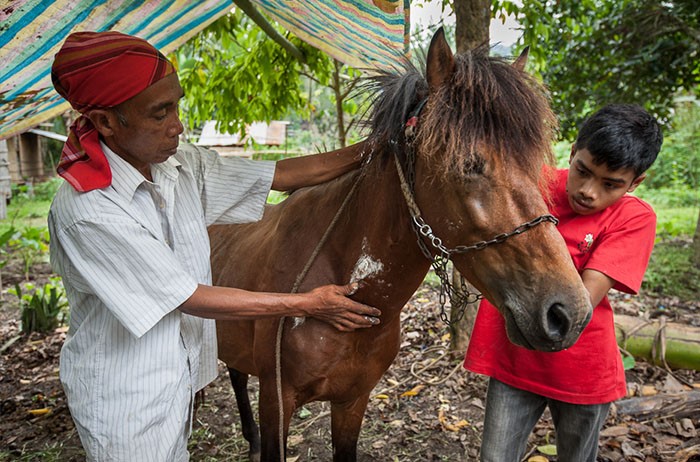Joaquim Magalhães de Castro
The time has come for us to mention the name of António Galvão, captain of Ternate and “Apostle of the Moluccas,” given his fervor in the evangelization of the geographical space of what is now Indonesia and that in the unexplored upstream islands inevitably had a word to say.
In this context, Galvao would send, in 1538, a ship commanded by Francisco de Castro with instructions to make as many Christians as possible. We are witnessing here an organized attempt of human settlement in a new territory, since Galvão was, besides being a propagator, a man with a sense of State. Francisco de Castro was charged with a simultaneous political, mercantile and religious mission. When he reached the island of Mindanao, he soon realized how easy it was to communicate with those local rulers of open mind and hidden interests.
Six kings from a settlement would soon receive the water of baptism, accompanied by their women, children and vassals, “and to most of them, orders by António Galvão, was given the name of Ioannes in memory of the third who reigned in Portugal,” writes Galvao, mentioning himself as if it were a third person, because that was his style.
This note proves the existence of an ongoing missionary process whose contours remain to be investigated to its full extent, and which, in essence, was inspired by the strategy previously used in the Indonesian archipelago of converting kings and queens that inevitably led to the conversion of their vassals, a method of success in some parts of Asia and in others, such as Tibet, not so much…
In addition to the latent proselytism, Galvão’s text provides us with an important set of cultural notes full of exaggerations and some inventions, as was the prerogative of the time. Galvão refers to swine that in addition to the teeth in their mouths had “two that came out of their snouts” and many others “behind their ears,” and spoke of the fruit of a tree that left those who even for twelve hours, doing “manly things without wisdom,” remembering nothing upon awakening. The symptoms indicated refer to a type of plant similar to datura strammonium, present in several geographies and whose origin is Asian.
I remember once, in the village of Tasnadal, in the Serra da Lousã, central Portugal – today a tourist pole of the well-accommodated alternative masses, but which once housed some hippy families – the episode of an individual who after drinking an infusion of datura spent a week thinking he was a dog! There are also notes of anthropological content (these are more reliable) such as the habit of the men of these islands to gild their teeth and cross “their nature” with a gold or silver bar “on whose ends burst roses with which the whole woman is bloodied. ”


 Follow
Follow


